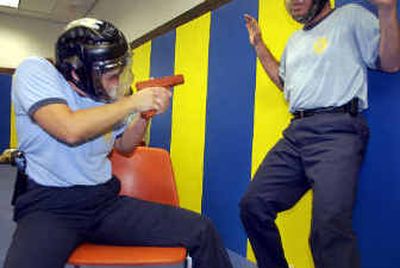Report says aviation still vulnerable

WASHINGTON – The nation’s aviation system remains vulnerable to attacks by al Qaeda and other terrorists who may be targeting noncommercial aircraft and helicopters, according to a government report.
Officials said the report by the Homeland Security Department and the FBI concludes that commercial airlines also remain susceptible to attack despite billions of dollars worth of security investments.
Moreover, members of al Qaeda are believed to be examining and testing U.S. security systems for weaknesses, officials said.
The confidential report, dated Feb. 25, reflects what officials have long said: that beefing up security in one sector would inevitably prompt terrorists to target other areas that might not be under the same level of scrutiny.
However, the report, drafts of which have been circulating since late last year, is the first to pull the intelligence together in a single package, officials said.
The report was first reported Sunday evening by the New York Times on its Internet site.
More than $12 billion has been spent on explosives detectors, armored cockpit doors, screeners, air marshals and other aviation security systems since the Sept. 11, 2001, terror attacks. President Bush has proposed giving the Transportation Security Administration $5.6 billion in 2006 – $2 billion of which for airline passenger screening and $1.45 billion for airline baggage screening.
But a report by congressional investigators in December found that TSA “has primarily focused on strengthening the security of commercial aviation.” That report noted that TSA doesn’t understand the risks posed by small private planes, fails to issue meaningful threat information to general aviation airports and can’t make sure charter airlines and flight schools comply with security regulations.